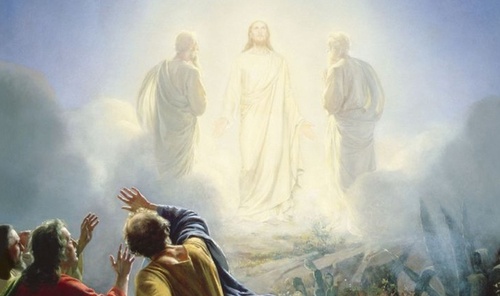Is Jesus God?
 Sunday, January 21, 2018 at 02:48PM
Sunday, January 21, 2018 at 02:48PM  “Who being the brightness of his glory, and the express image of his person.” Hebrews 1:3
“Who being the brightness of his glory, and the express image of his person.” Hebrews 1:3
Who is Jesus? Fasten your seat belts, because we must dig deep into this archetypal Scripture to find out. The phrase express image in our text comes from the Greek word charakter. It is the only occurrence of the word in the New Testament. It means “to impress upon, or stamp,” denoting an engravement from a tool, which impresses an image into a piece of metal or other substance. The word person is translated from the Greek word hupostasis. From this word we get the term “hypostatic union,” the union between deity and humanity in the man Christ Jesus. We understand hupostasis as “essence of being, or the substance of a thing.” It is like the foundation under a building, or that which underlies, makes up, or supports a thing. Hupostasis is to God as air is to wind; hupostasis is to God as water is to wave; hupostasis is to God as notes are to music. The only other time the word appears in Scripture is Hebrews 11:1 “Faith is the “substance” (hupostasis) of things hoped for, the evidence of things not seen.” Faith is the underlying support, or foundation of things that are hoped for.
Jesus does not just represent God. He is the visible impression of God’s invisible substance. He is God’s essential nature expressed in humanity as the Son of God. He is the corresponding engravement of God in human form. He is the adequate imprint of God. At Bethlehem, God rolled out, as it were, a blank sheet of humanity over the invisible essence of divinity and embossed a visible image that humans could see. When Mary held up the baby, we could trace all the divine attributes of God through the transference of his image into the flesh of Jesus. Jesus is everything about God permanently settled in the body of Jesus. “For in him dwells all the fulness of the Godhead bodily.” Colossians 2:9. The NIV says “For in Christ all the fullness of the Deity lives in bodily form.” Jesus did not merely possess some divine attributes. He possessed every aspect of deity. One preacher said, “The question is more ‘How could He?’ than ‘Who was He?’ How could the God of Mary become the Son of Mary and never cease to be the God of Mary? How could the Eternal God become Time’s Man and never cease to be the Eternal God?”
Are these just confusing theological semantics? Absolutely not! “The Word made flesh” (John 1:14) demonstrated how God fully loved us. God identified with us in every way, even to the point that He limited His divinity, so He could face the same challenges that we face. It is the way that he could fully understand what we face in this existence. It is the way He could become our example and offer help in the time of need. The incarnation is profoundly relevant to us today. It is the way that He showed us to rely strictly upon the Holy Ghost for strength to overcome temptation and be perfectly led of the Spirit. Jehovah-Jesus knows what you are going through. When you feel forsaken, so did He on the cross. When you are struggling with the will of God you can rest knowing that Jesus also struggled the same way in the Garden of Gethsemane. He prayed that His Father would change His will. Jesus is your example for ministry, overcoming temptation, and empathizing with others. (2 Corinthians 1:3-7.) Christology further demonstrates to us how Christ’s person affects our salvation. If He was not perfect man and perfect God He could not have saved us. When we experience salvation, it is not a mere experience, but it is an encounter with Jesus Christ, the King of Glory!
Oh, how I love Him! How I adore Him! My breath, my sunshine, my all in all!
The great Creator became my Savior, and all God’s fullness dwelleth in Him!

Reader Comments